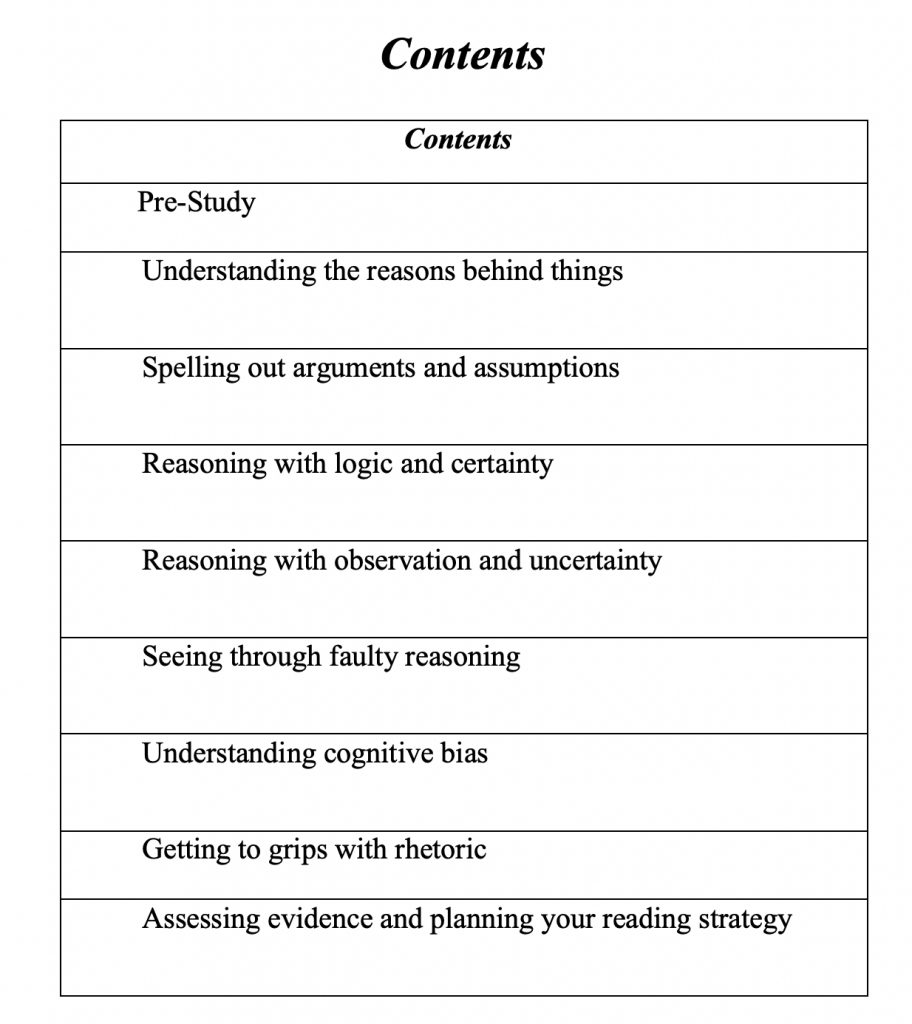Critical Thinking Notes – Distinction
Summary:
The note covers various aspects of critical thinking and metacognition. It begins with an introduction to pre-study, where it defines important concepts such as metacognition, uncritical thinking, critical thinking, scepticism, objectivity, bias, unconscious and conscious bias, survivorship bias, dogmatism, attention, distraction, reasoning, and the purpose of critical thinking.
Metacognition refers to thinking about one’s own thinking and acquiring higher-order skills for continuous learning and adaptation. Uncritical thinking is accepting information without questioning its accuracy or reasonableness. On the other hand, critical thinking involves actively seeking to understand the truth by using reasoning, evaluating evidence, and reflecting on the thinking process itself. Scepticism is the practice of not automatically accepting information as true without examination.
Objectivity emphasizes understanding a subject from a neutral perspective rather than relying on a single opinion or initial information. Both conscious and unconscious bias distorts one’s view by presenting a one-sided perspective or making decisions influenced by hidden factors. Survivorship bias is the tendency to focus only on successful examples while disregarding failures and the bigger picture.
Dogmatism is the belief that certain principles are absolute truths immune to critical scrutiny or discussion. Attention versus distraction involves allocating focused engagement to a task while excluding irrelevant information and other tasks. Reasoning is the act of thinking logically and sensibly, allowing for meaningful debate, disagreement, and collaboration.
Excerpt:
Critical Thinking Notes
Contents
- Pre-Study
- Understanding the reasons behind things
- Spelling out arguments and assumptions
- Reasoning with logic and certainty
- Reasoning with observation and uncertainty
- Seeing through faulty reasoning
- Understanding cognitive bias
- Getting to grips with rhetoric
- Assessing evidence and planning your reading strategy
Pre-study 1
- What is Metacognition? Thinking about thinking itself, the higher-order skills that allow you to successfully keep on learning, improving and adapting.
- What is Uncritical Thinking? automatically believing what you read or are told without pausing to ask whether it is accurate, true or reasonable.
- What is Critical Thinking? setting out actively to understand what is really going on by using reasoning, evaluating evidence and thinking carefully about the thinking process itself.


Reviews